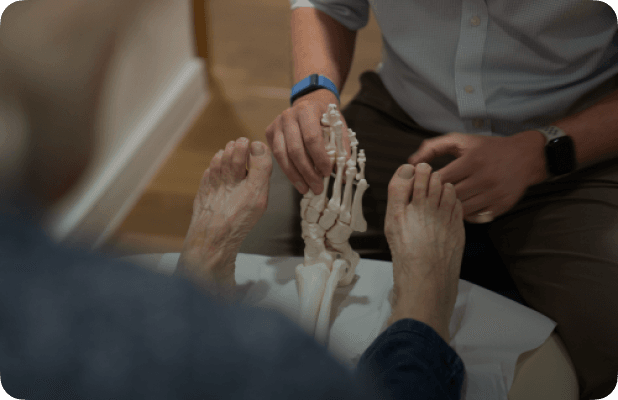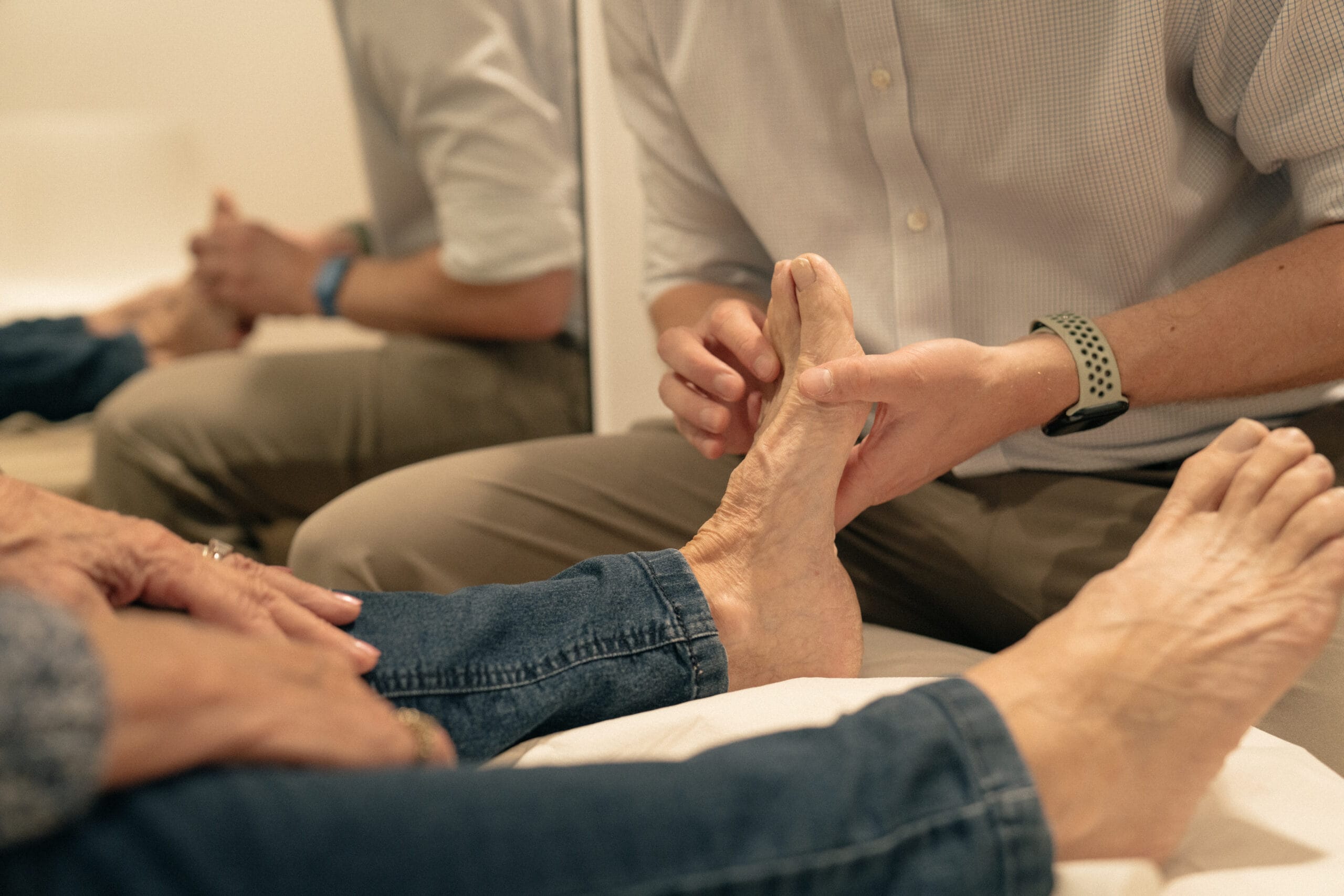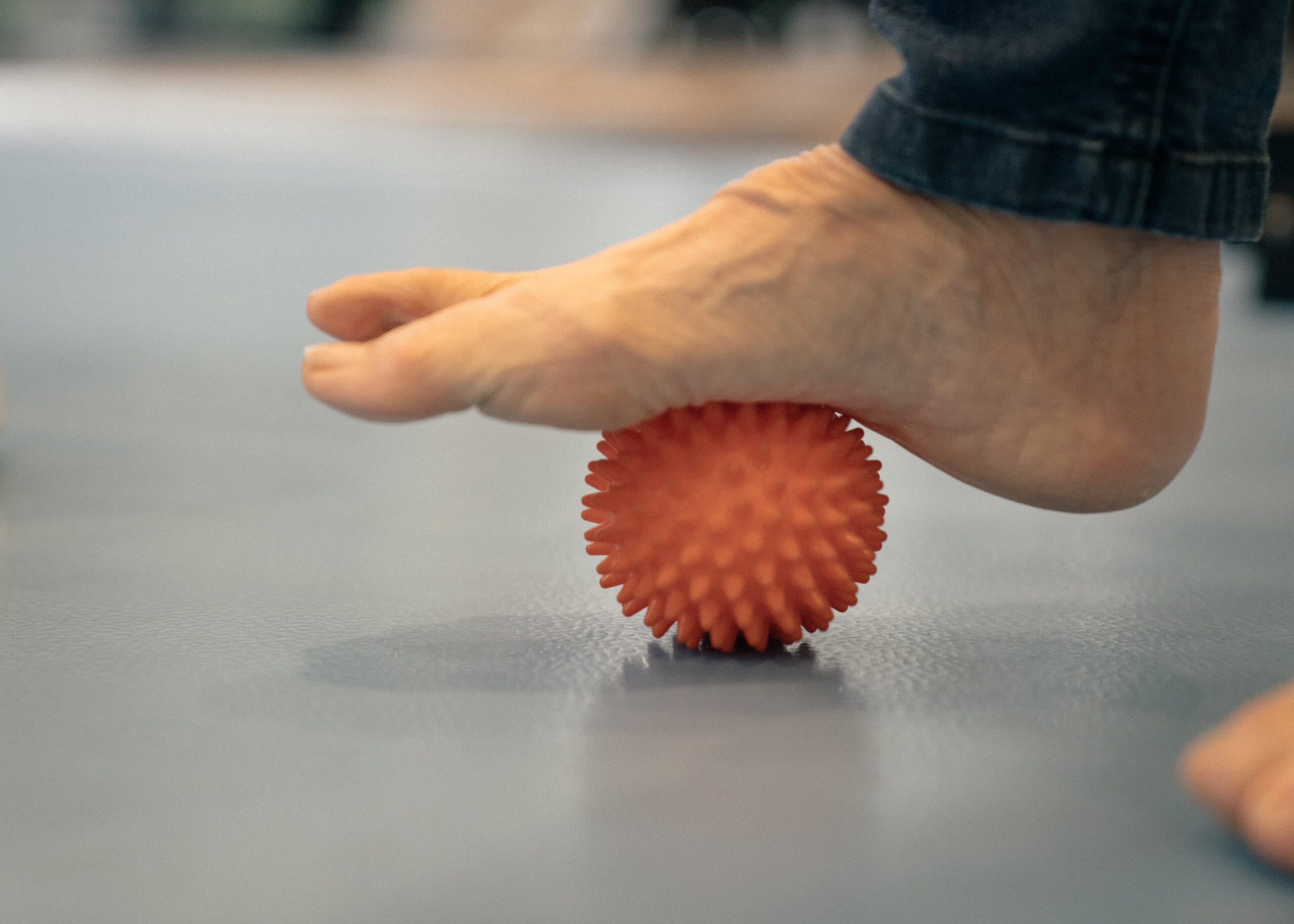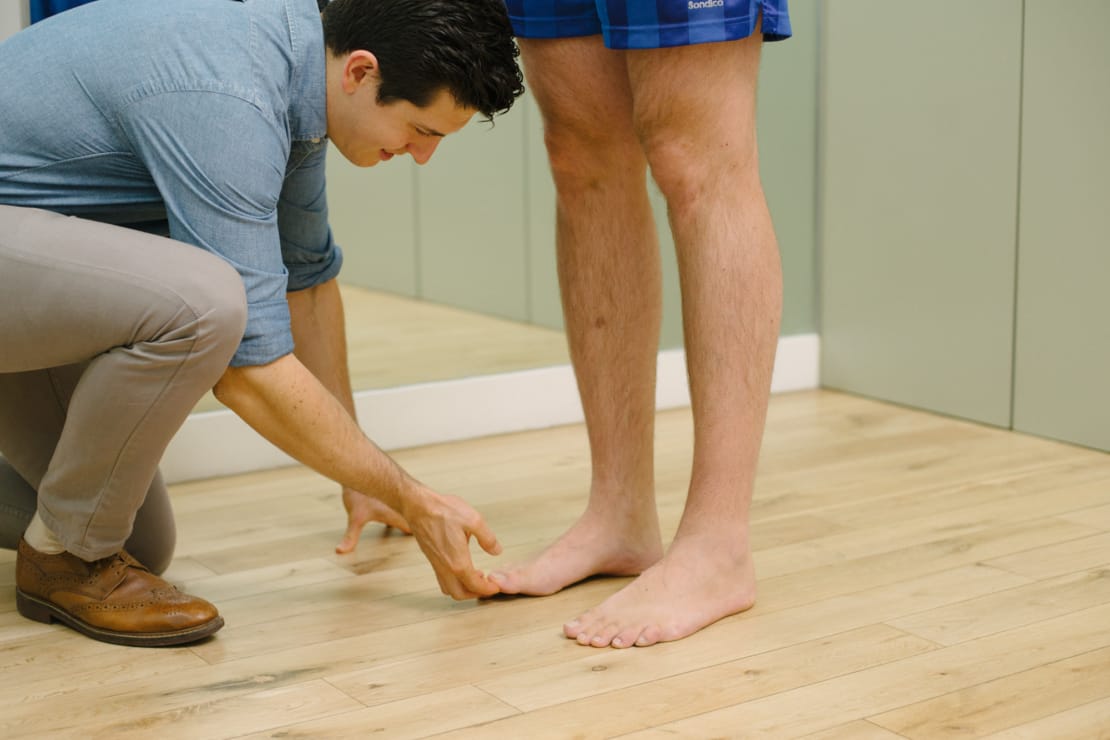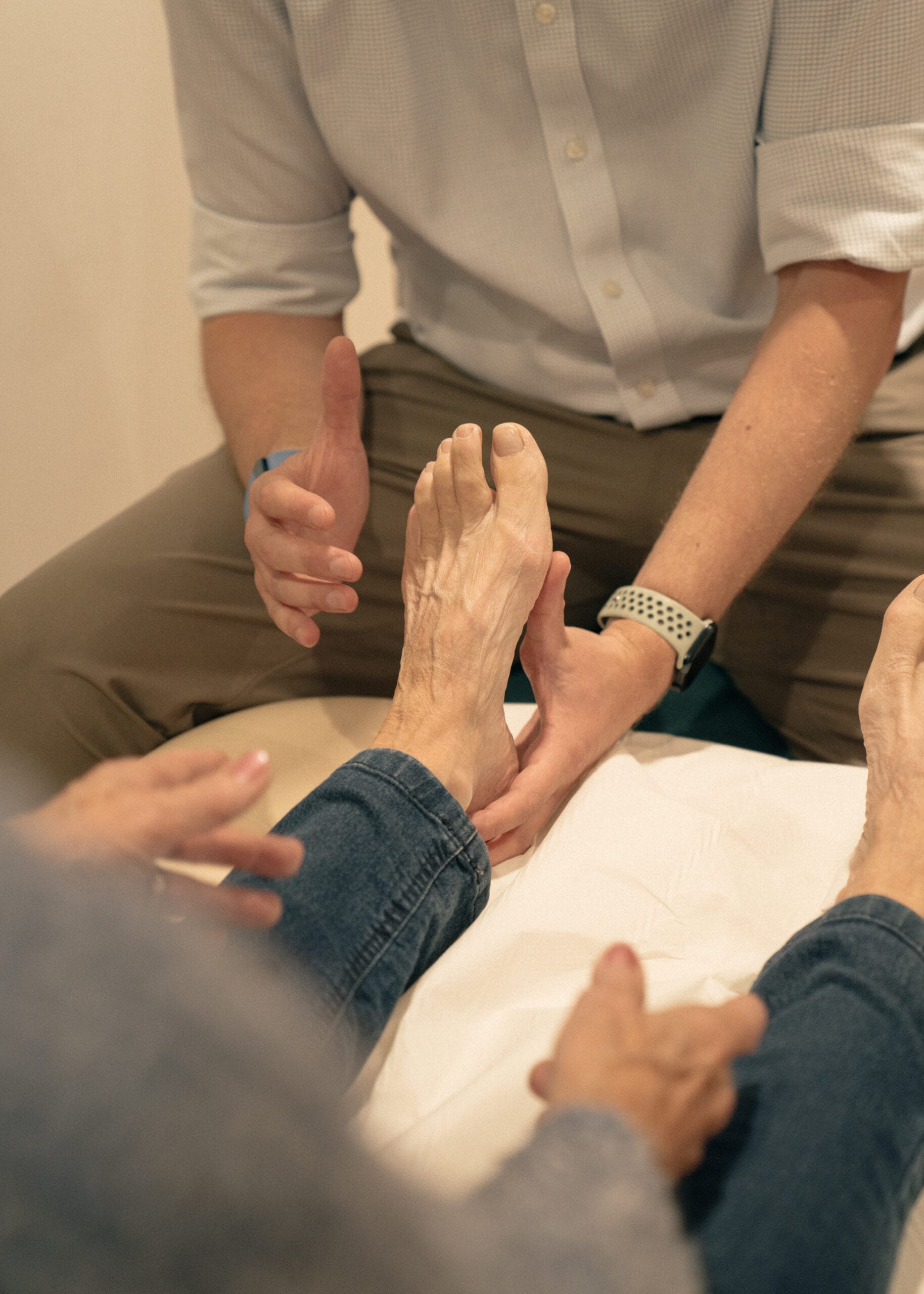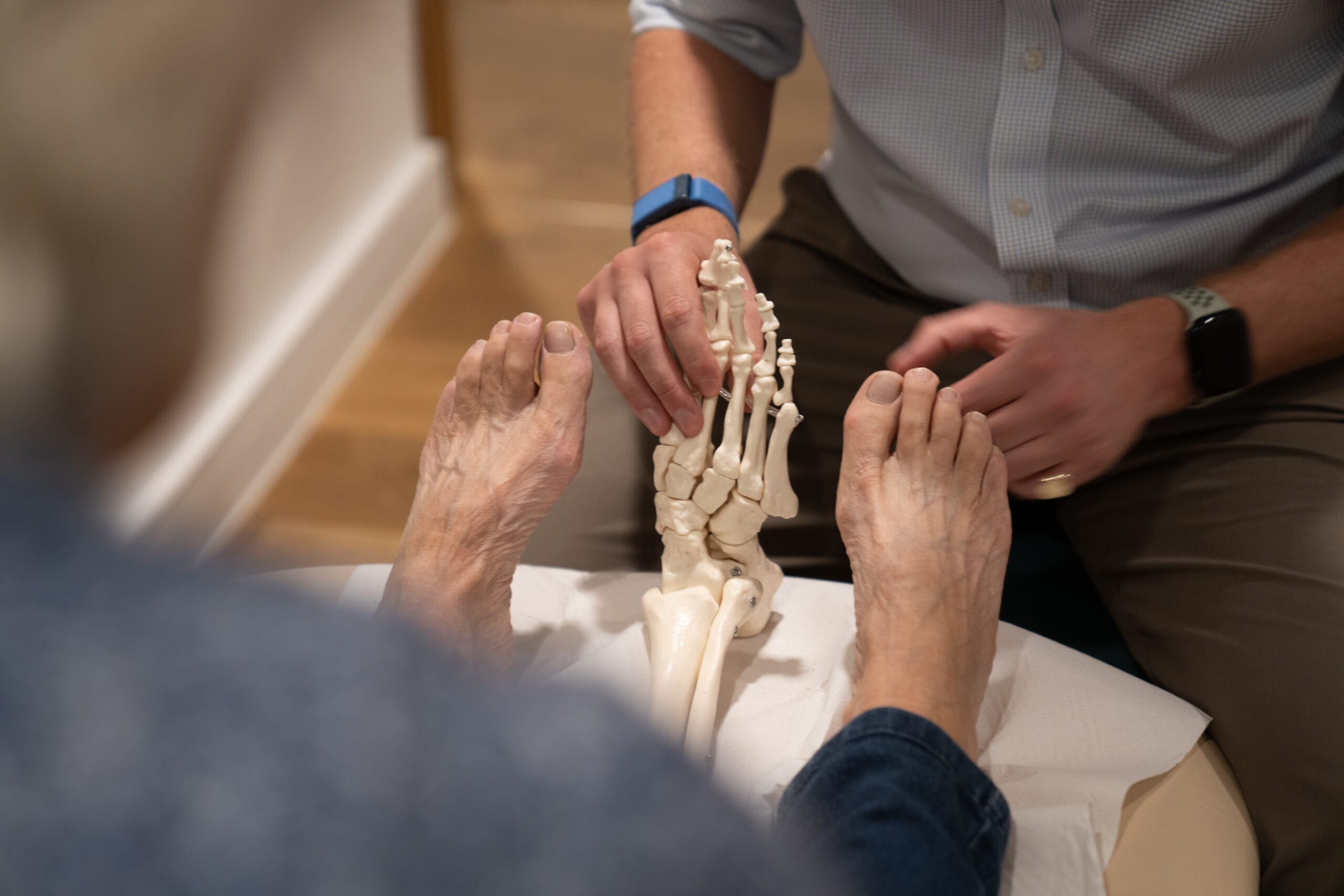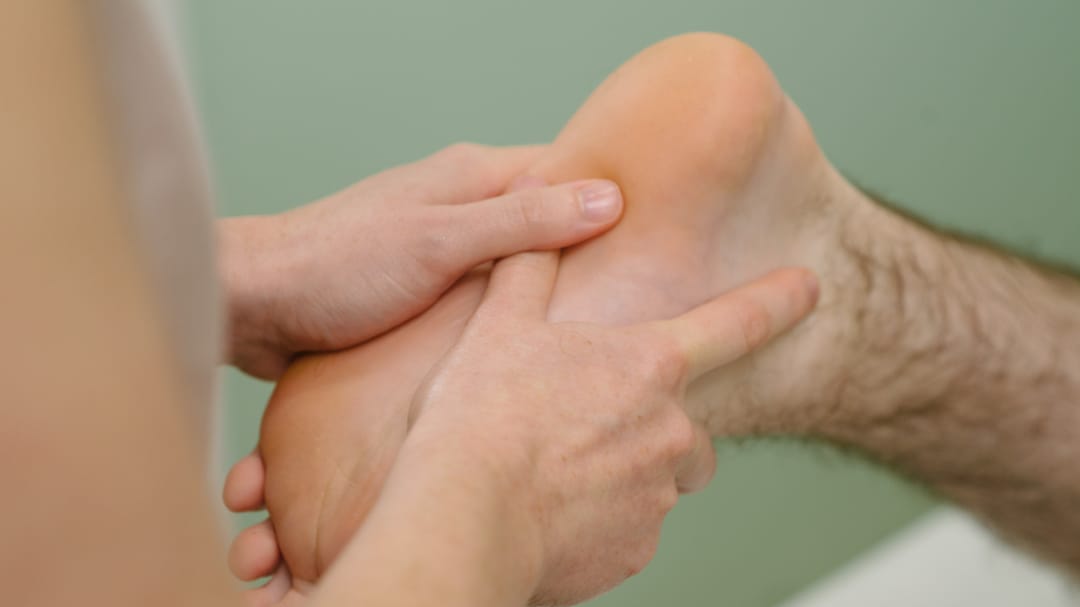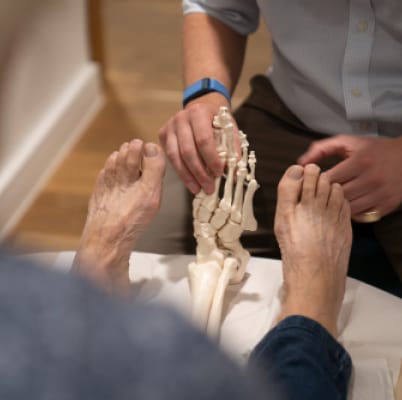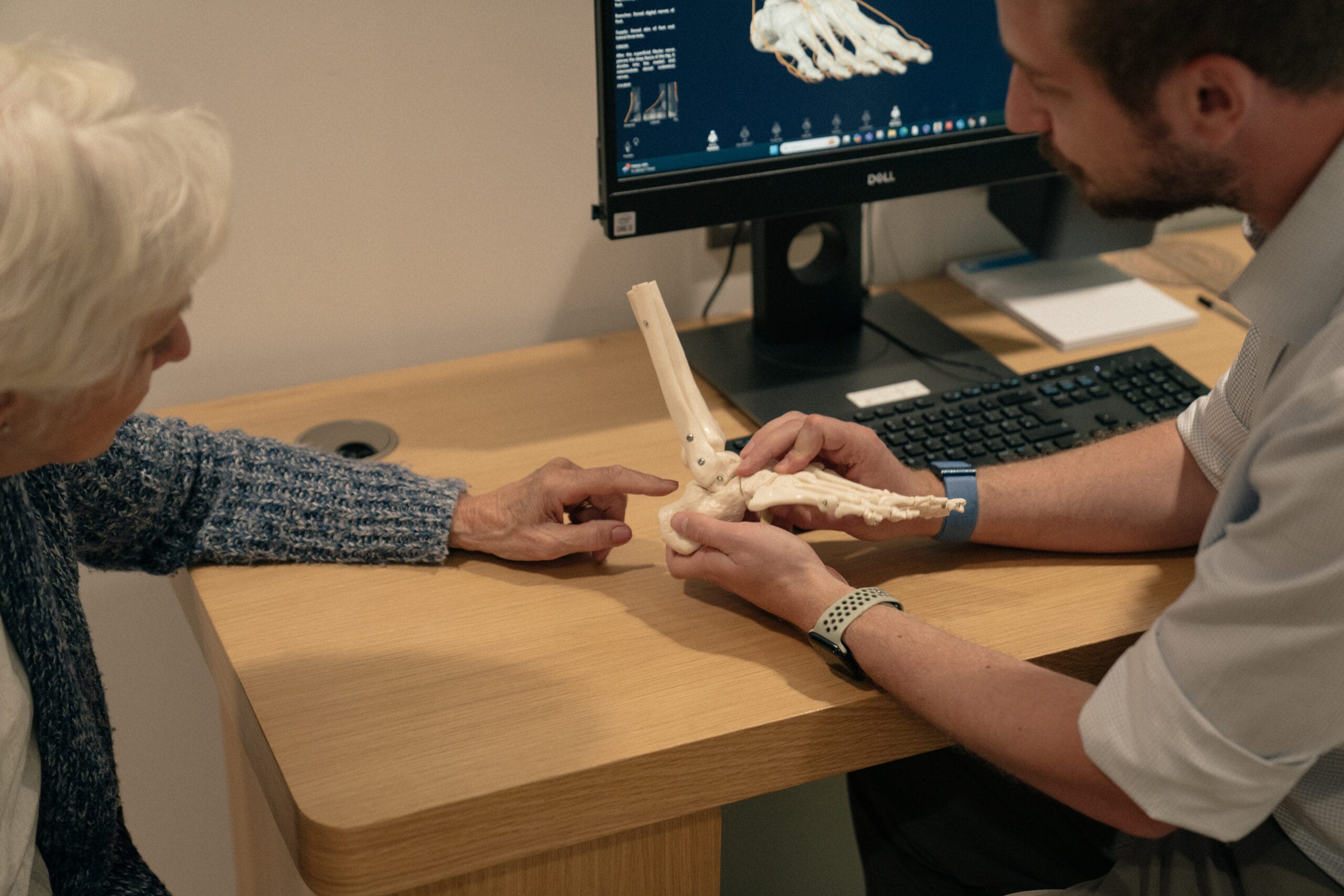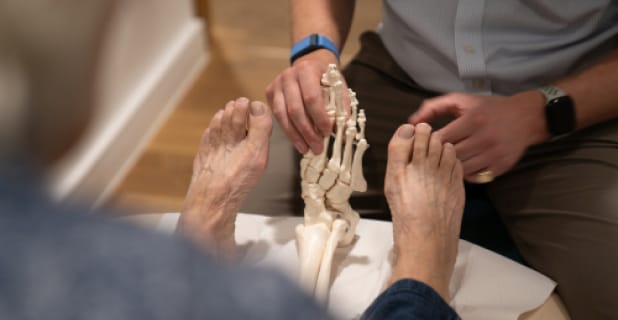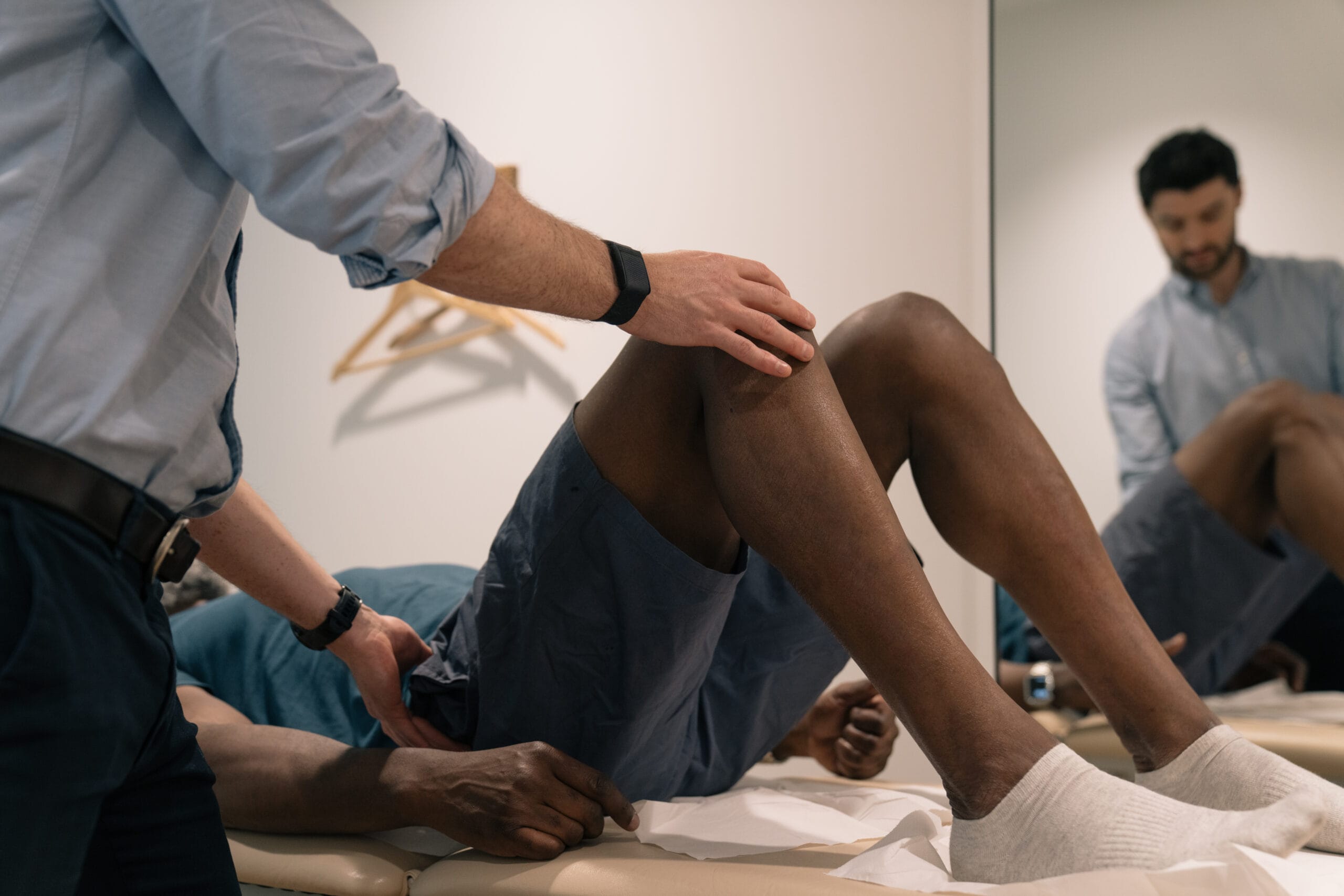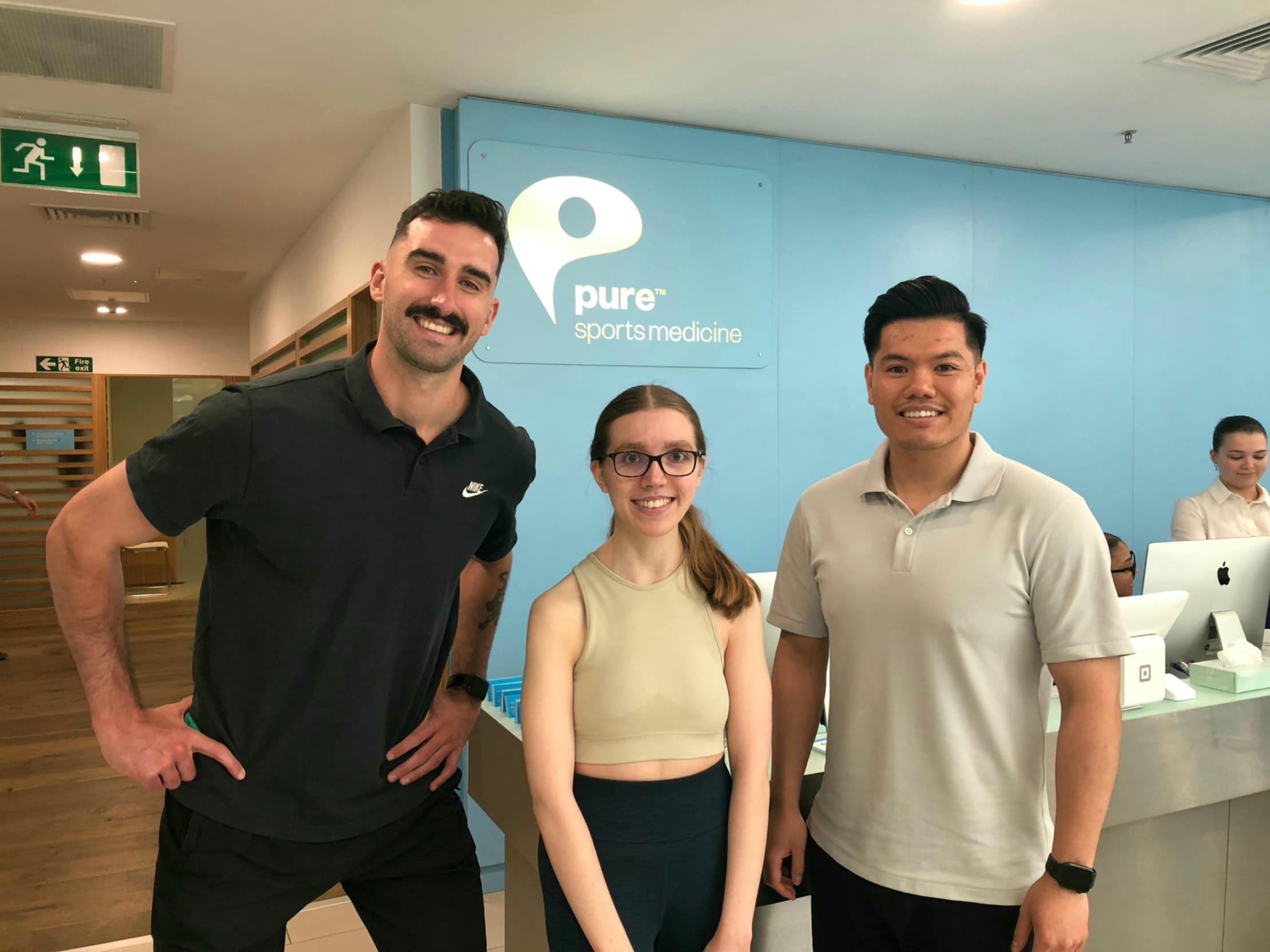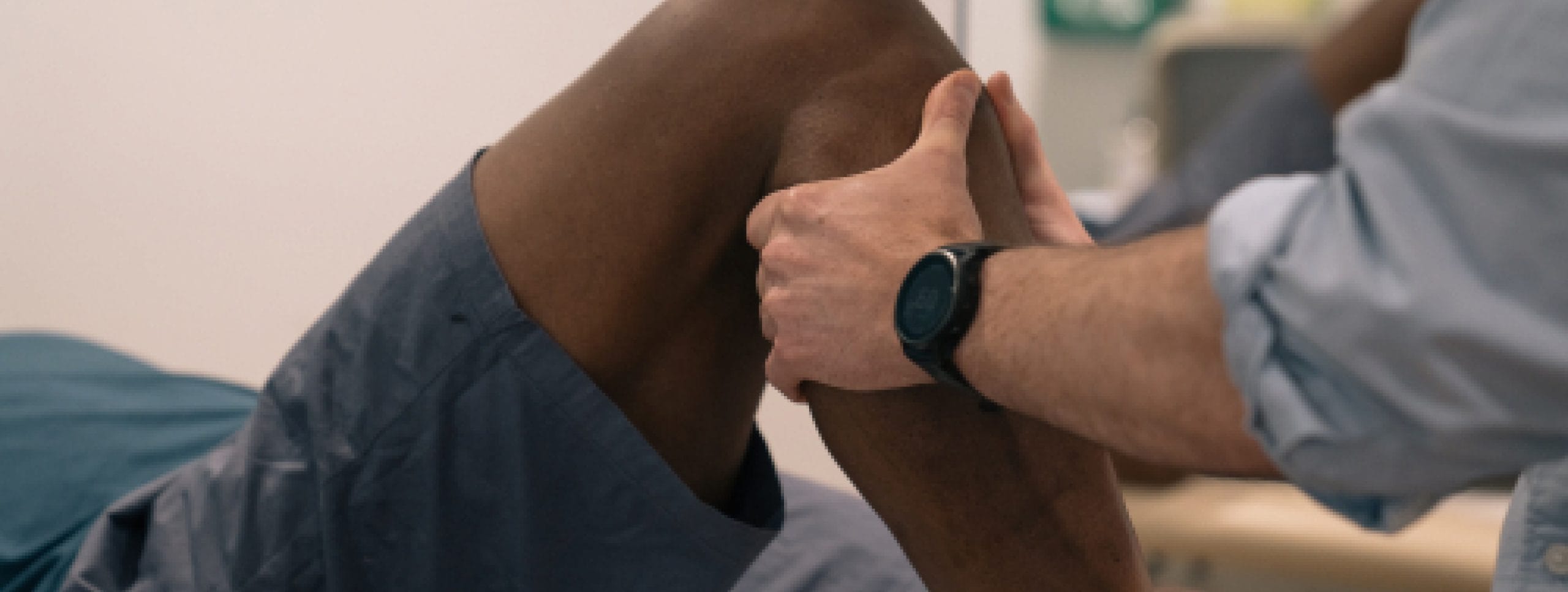
Foot Health
Our foot health service provides treatment for a variety of common foot issues and conditions.
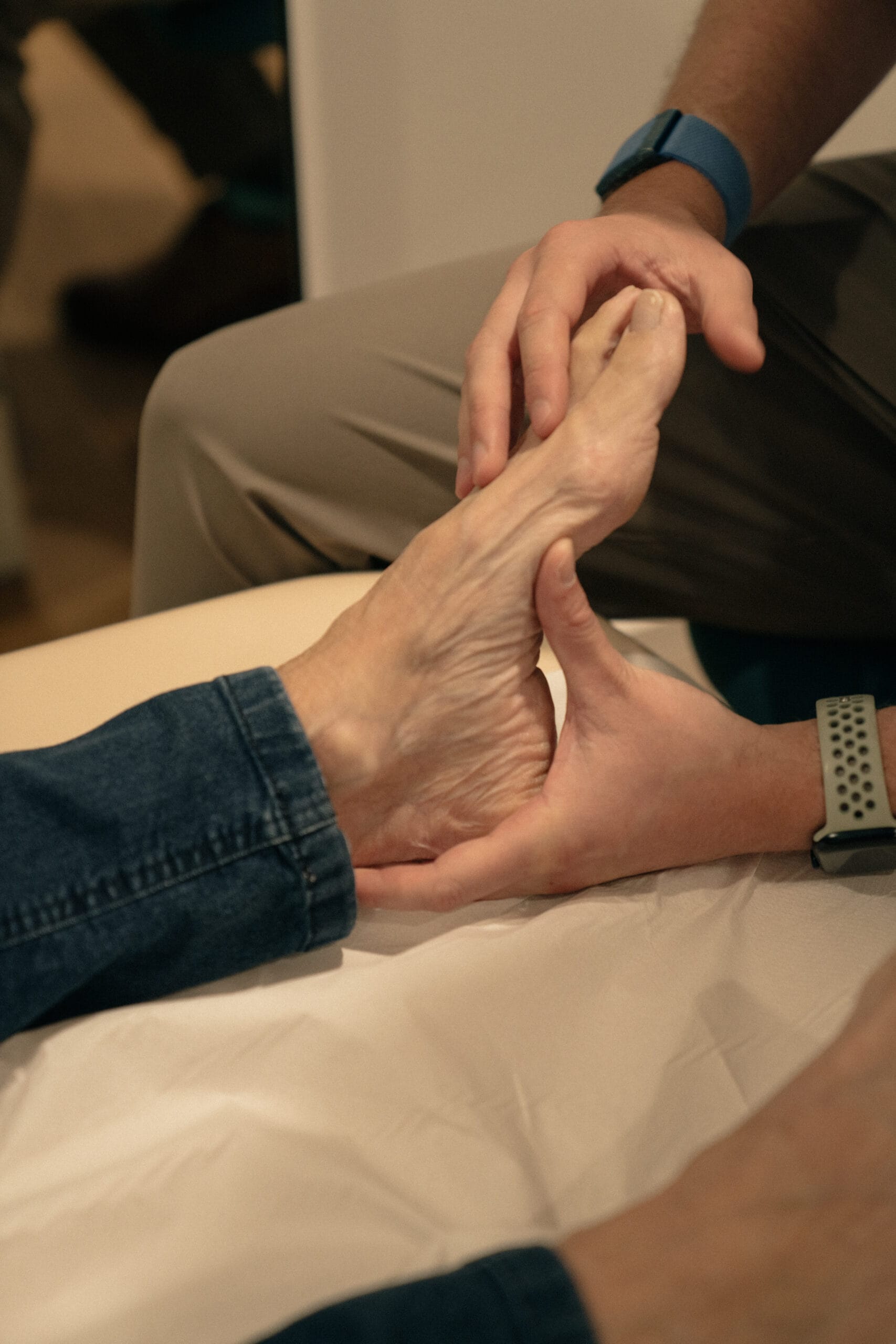
Our foot health service combines both expert podiatry and chiropody to relieve your symptoms and lead you to healthier, more comfortable feet.

Starting with a full assessment of your foot health with one of our expert Podiatrists, you will be guided through the care your feet require. This consultation will look at the history of your presenting issue, followed by a full assessment of the architecture and mechanical behaviour of your feet to understand how they interact with the environment and if movement patterns may be influencing pain or injury.
As part of your assessment, the Podiatrist will appraise your current footwear and shoe inserts. The Podiatrist will then discuss their findings with you and agree upon the best strategy to help alleviate your symptoms and restore optimum foot health with the help of our Chiropodists.
Book an appointmentOur Foot Health Specialists

Pricing
- Initial Consultation (30 mins) – £110
- Follow-up Consultation (30 mins) – £80
Conditions covered by our
foot health service:
Corns are small, thickened areas of skin that develop due to repeated pressure or friction, often on the toes or soles of the feet. They can be painful and may cause discomfort while walking or wearing shoes. Corns typically form due to ill-fitting footwear, abnormal gait patterns, or excessive rubbing. Treatment includes wearing properly fitted shoes, using protective padding, and gently removing hardened skin. In persistent cases, a Podiatrist can provide professional care to relieve pain and prevent recurrence.
Calluses are thickened, hardened areas of skin that develop in response to repeated friction or pressure, commonly on the hands, feet, or other weight-bearing areas. They serve as a natural protective barrier but can sometimes become uncomfortable or painful. Calluses often result from activities like walking, running, or manual labour and are typically caused by ill-fitting footwear or repetitive movements. Treatment includes moisturising, gentle exfoliation, and wearing properly cushioned shoes to reduce pressure and prevent further build-up.
Nail issues, such as fungal infections, ingrown toenails, and brittle or thickened nails, can cause discomfort and affect overall foot health. These conditions may result from poor hygiene, improper footwear, trauma, or underlying medical conditions. Symptoms can include pain, discoloration, or changes in nail texture. Treatment options range from proper nail care and hygiene to medical interventions like anti-fungal treatments or minor nail surgery. Regular foot care and wearing well-fitted shoes can help prevent common nail problems.
Nail surgery is a minor procedure used to treat persistent nail conditions such as ingrown toenails, infections, or thickened nails. Performed under local anaesthesia, it typically involves partial or complete removal of the affected nail, sometimes with chemical treatment to prevent regrowth. Nail surgery helps relieve pain, reduce infection risk, and restore normal nail growth. It is a safe and effective solution when conservative treatments fail to resolve the issue.
Verrucae treatment focuses on removing plantar warts, which are caused by the human papillomavirus (HPV) and commonly appear on the soles of the feet. Treatments include cryotherapy (freezing), salicylic acid applications, laser therapy, and specialized medical procedures to destroy the wart tissue. Verrucae can be painful, especially when walking, and may spread if left untreated. Seeking professional care helps ensure effective removal and reduces the risk of recurrence.
Diabetic foot and toe issues arise due to poor circulation and nerve damage (neuropathy) caused by diabetes, increasing the risk of ulcers, infections, and slow healing wounds. Common problems include dry skin, calluses, fungal infections, and foot deformities. Regular foot checks, proper footwear, and professional podiatric care are essential for preventing complications. Early detection and management of diabetic foot issues can help reduce the risk of serious conditions, including amputation.
Your body is your most important investment, and it deserves more. Make sure you get a correct diagnosis and an appropriate, tailored treatment plan, right from the very start.
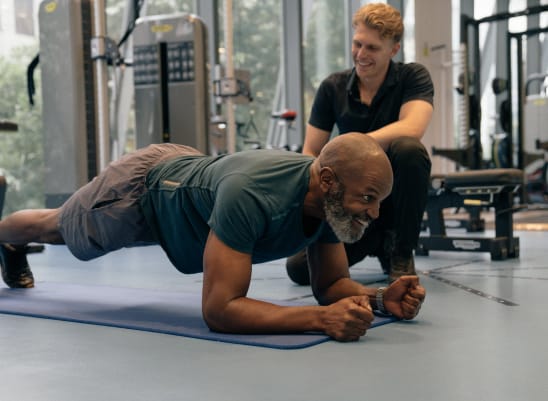
-
Work with a dedicated team of specialists, tailored to meet your specific needs and goals.
-
We combine over 1,000 years of expert experience in musculoskeletal healthcare and elite sport.
-
We are covered by all major insurers and also offer flexible self-pay options for added convenience.
The Pure Experience Overview
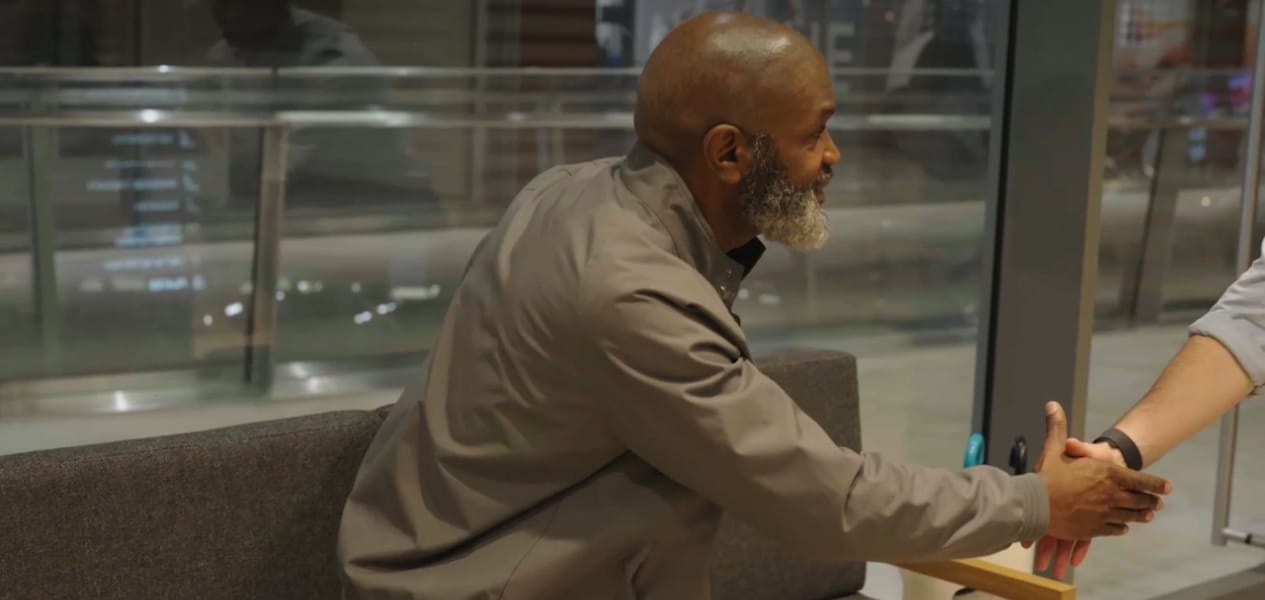
Your Journey with Pure
Everything we do is personalised to you. Whether your goal is to run a marathon or simply walk up the stairs comfortably, we’ll deliver the correct diagnosis and tailored treatment you need to get there so that you can perform at your best and prevent reoccurrence.
Frequently asked questions
A callus is a thickened area of skin that forms due to repeated pressure or friction, often on the soles of the feet. Treatment typically involves reducing the thickness with debridement, moisturising, and addressing the underlying biomechanical cause with proper footwear or orthotics. Regular foot care from a Podiatrist can help prevent recurrence.
A corn is similar to a callus but is smaller and has a hard centre, typically found on areas of the foot where there’s direct pressure, like over joints. Treatment involves reducing the pressure with padding or changing footwear, as well as gentle excision by a podiatrist. Corns should not be treated at home with sharp objects, as this can cause injury.
The frequency of treatment varies depending on the severity of the condition and the underlying causes. Many patients benefit from routine podiatry care every 6 – 8 weeks, but your Podiatrist will recommend a personalised care schedule based on your needs.
Verrucas are caused by the human papillomavirus (HPV), which enters the skin through small cuts or abrasions. They can spread through contact with infected surfaces. Treatment options include cryotherapy (freezing), acid treatments, dry needling, and in some cases, laser therapy or minor surgical removal. Your podiatrist will recommend the most suitable approach based on the size and persistence of the verruca.
Over-the-counter treatments are available, but they are not always effective, especially for stubborn or painful verrucas. Self-treatment can sometimes cause irritation or spread the virus. It’s best to consult a Podiatrist for professional advice and treatment options.
Nail surgery is a minor procedure performed under local anaesthesia to remove part or all of a toenail, usually to treat ingrown toenails or nail infections that have not responded to conservative treatments.
Nail surgery is carried out under local anaesthesia, so you will not feel any pain during the procedure but the injections themselves can be painful for a short period of time. After the surgery, you may experience mild discomfort, which can be managed with painkillers. Your podiatrist will provide aftercare advice to ensure a smooth recovery.
After the procedure, you will need to keep the foot elevated for a short period and wear an open-toed shoe or sandal. Your Podiatrist will dress the toe and give you instructions for keeping the area clean. Full recovery typically takes a few weeks, and you’ll have follow-up appointments to check your progress.
Ingrown toenails occur when the edge of a nail grows into the surrounding skin, causing pain and sometimes infection. They can be caused by improper nail trimming, wearing tight shoes, or trauma to the toe. To prevent ingrown toenails, cut nails straight across and avoid tight footwear. If you have recurring issues, a Podiatrist can recommend treatment options, including surgery if needed.
People with diabetes are at a higher risk of developing foot problems due to reduced circulation and nerve damage (peripheral neuropathy). These conditions can make it harder to feel injuries or infections, leading to more serious complications like ulcers or, in severe cases, amputations. Regular foot care and monitoring are crucial to prevent these issues.
Diabetes can cause blood vessels in the legs and feet to narrow and harden, reducing blood flow (a condition called peripheral arterial disease). Poor circulation can lead to slower healing of wounds, increasing the risk of infection and ulcers.
Diabetic neuropathy is nerve damage caused by high blood sugar levels over time. In the feet, this can result in numbness, tingling, or loss of sensation, making it difficult to notice injuries. Without prompt treatment, unnoticed wounds can become infected or lead to more serious complications.
Yes, many diabetic foot problems can be prevented with good blood sugar control, daily foot checks, proper footwear, and regular visits to a Podiatrist. Early detection of minor issues can help prevent more serious complications.
Proper footwear helps to reduce pressure points on the feet, preventing blisters, calluses, and ulcers. Diabetics should choose shoes that fit well, offer good support, and avoid shoes with high heels or narrow toes. Your Podiatrist can recommend specialised shoes or custom orthotics if needed.
Yes, diabetics should be extra cautious with nail care to avoid cuts or infections. It’s important to trim nails straight across and avoid cutting them too short. If you have difficulty trimming your nails or are at high risk for complications, your Podiatrist can provide professional nail care.
During a diabetic foot check, your Podiatrist will:
- Examine your feet for signs of neuropathy, circulation problems, or deformities.
- Assess any wounds or infections.
Provide guidance on foot care and footwear. - Suggest treatments or interventions if necessary, such as orthotics, wound care, or nail trimming.
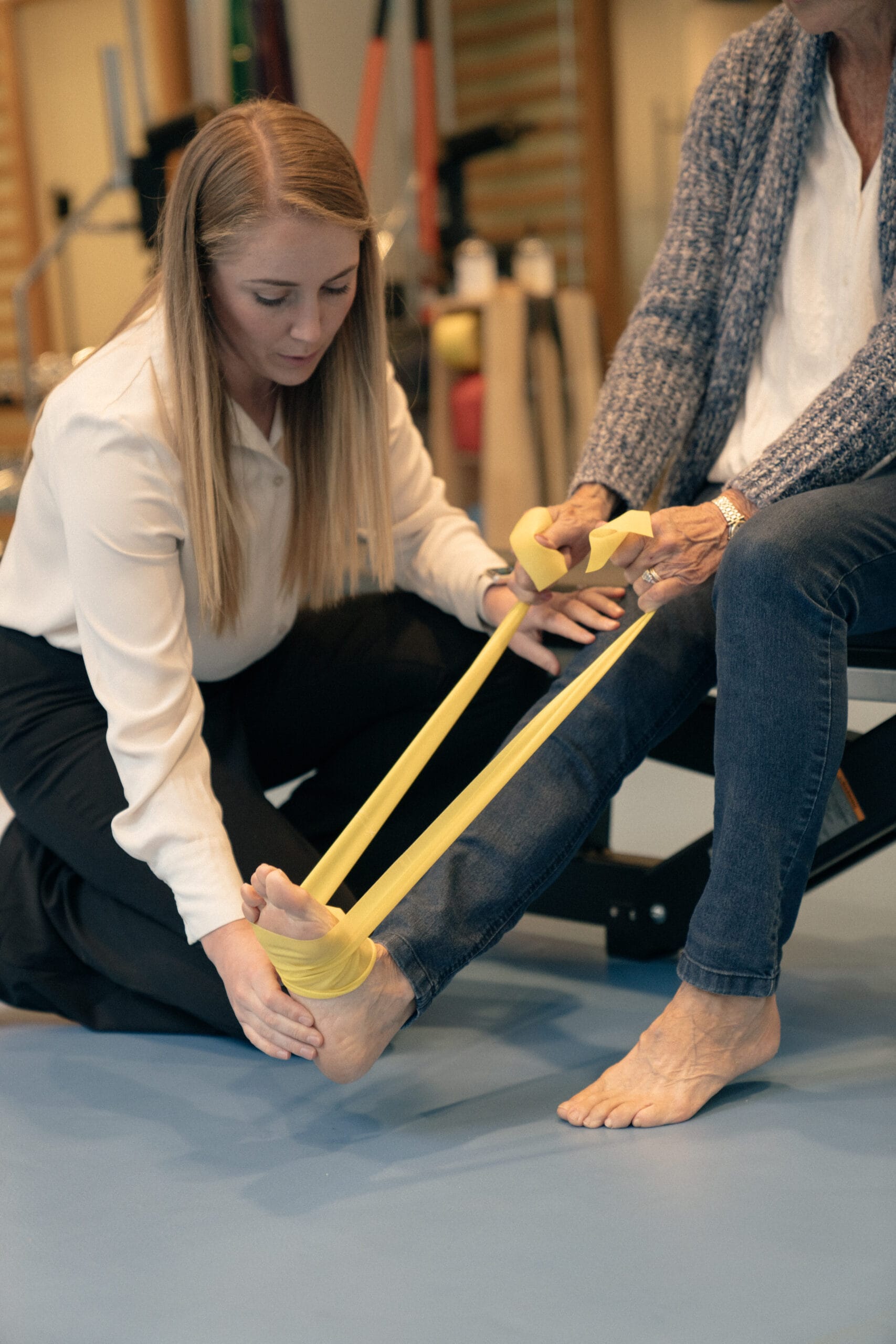
Chiropody, or routine podiatry treatments, covers a wide range of services aimed at keeping feet healthy and addressing specific foot conditions.

Routine care includes the removal of calluses and corns, which can develop due to friction or pressure, providing relief and preventing further issues. Nail care involves trimming and thinning thickened nails, managing fungal infections, and treating painful ingrown toenails.
For more serious ingrown toenail cases, nail surgery might be required, where part or all of the nail is removed under local anaesthetic. In some cases, this may also include prescribing antibiotics if a bacterial infection is present, such as in cases of infected ingrown toenails. This helps ensure timely and appropriate treatment, reducing the risk of the infection spreading or worsening.
Chiropodists also treat verrucae (viral warts) using various methods such as cryotherapy (freezing), needling, or topical treatments to remove the wart and promote healing.
For diabetic patients, regular foot checks are essential to monitor circulation and sensation, as diabetes can increase the risk of foot ulcers, infections, and even amputation.
Nail Surgery: Procedure Information